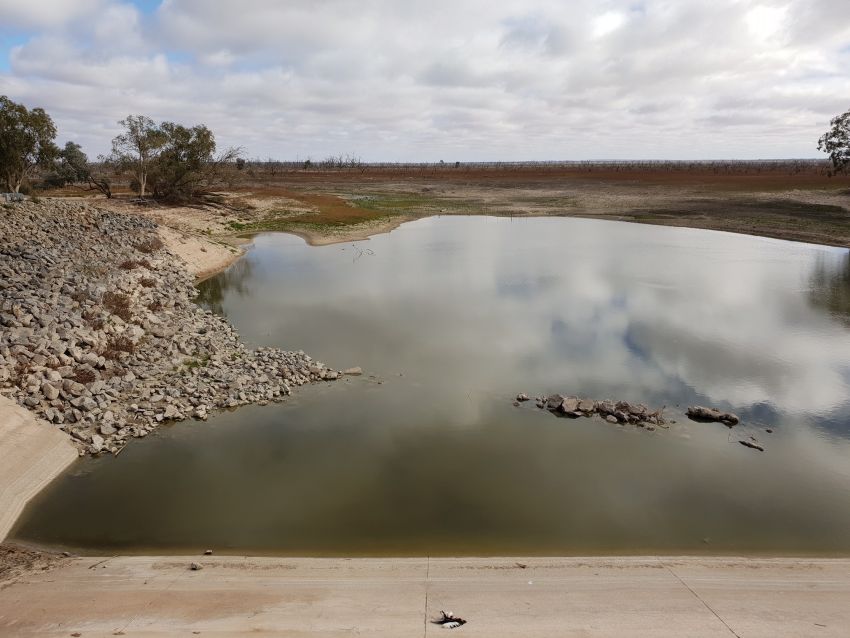
Charges against Baakindji woman and water campaigner Leah Ebsworth have finally been dropped, with a Wilcannia District Court judge finding on May 26 that it is not an offence to protest on a bridge.
Ebsworth had been charged with “failing to obey a move on order” and “assault a police officer” (with water). She is a long-term campaigner supporting native title rights over the Baaka (Darling River) and the Wilcannia district.
She was arrested for taking part in a peaceful blockade of a bridge in March last year against the corporate theft of water upriver.
The judge noted that while it is a federal offence to blockade a national highway (the Barrier Highway between Broken Hill and Cobar), it is not an offence to protest on a bridge.
Furthermore, the judge ruled that as a Baakindji with native title rights over the Baaka and the Wilcannia area, Ebsworth was well within her rights to protest on that bridge over water rights.
On March 13 last year, water activists, including Baakindji, Ngemba/Gomeroi people from Wilcannia, Menindee, Bourke and other districts in NSW converged on Wilcannia to highlight how the theft of water upriver was causing stagnant pools, toxic blue-green algae blooms and a mass fish die-off. The protesters called for an end to privatisation and water trading.
The protesters negotiated with police to stop traffic either side of the bridge for four hours, after which the police demanded they leave. About 10 mostly local Baakindji women moved back onto the bridge roadway to conduct women’s business, painting Aboriginal motifs on a large sheet. Police removed them, charging Ngemba/Gomeroi woman Caroline Kirk with “failing to obey a move on order”. Police alleged some protesters were drunk which Kirk denied.
Kirk attended Wilcannia Court on April 22 and July 22 last year where she pleaded not guilty, stating also that she was a native title applicant. The police prosecutor dropped her charges, leaving her vindicated.
Months after the blockade, Ebsworth was charged by police. Witnesses refuted the charges and she pleaded not guilty at a local court hearing in Wilcannia on September 23.
The police had wanted to move the hearings to the District Court in Broken Hill, 200 kilometres away, which she prevented, insisting that police witnesses make written statements. The charges of “Not obeying a move on order”, and “Being drunk and disorderly” were dropped.
At a District Court hearing in Wilcannia on October 21 when Ebsworth faced the remaining charges, she noted that the police’s written statements differed in details. Again, the police prosecutor tried to adjourn the hearing to Broken Hill to avoid transportation and accommodation costs for police witnesses.
However, following protests outside the courthouse, the magistrate denied the prosecutor’s request and set the adjourned hearing for May 20, at the historic Wilcannia Courthouse. It eventually took place on May 26.
Ebsworth told Mark Merrit of Earthling Studios that when she had attended the police station in Broken Hill she had been ridiculed by police. She was so upset she signed herself into the mental health ward at Broken Hill Hospital.
During the hearings, she had wanted the sheet painted by the Indigenous women protesters on the bridge to be shown as evidence but it was ruled inadmissible. Ebsworth complained about the lack of female police officers on the bridge that day. She said that despite her health problems, she had fought the law and won.